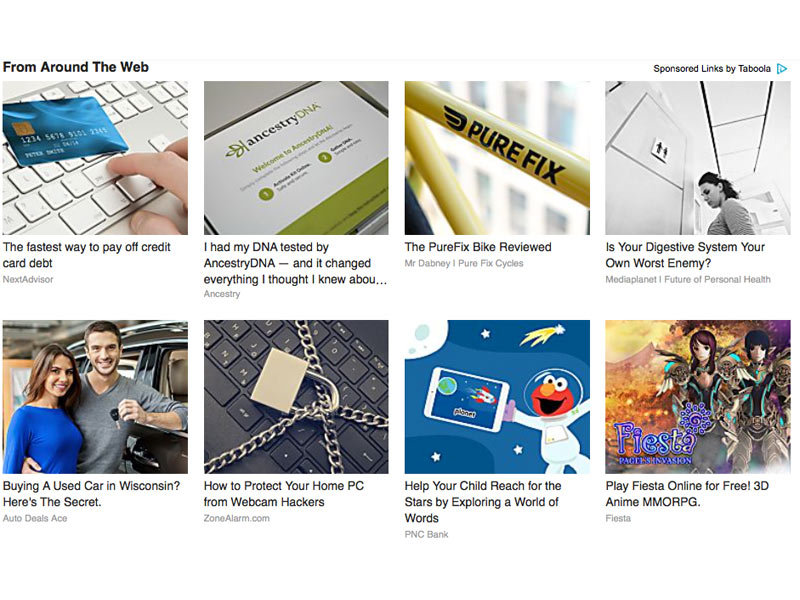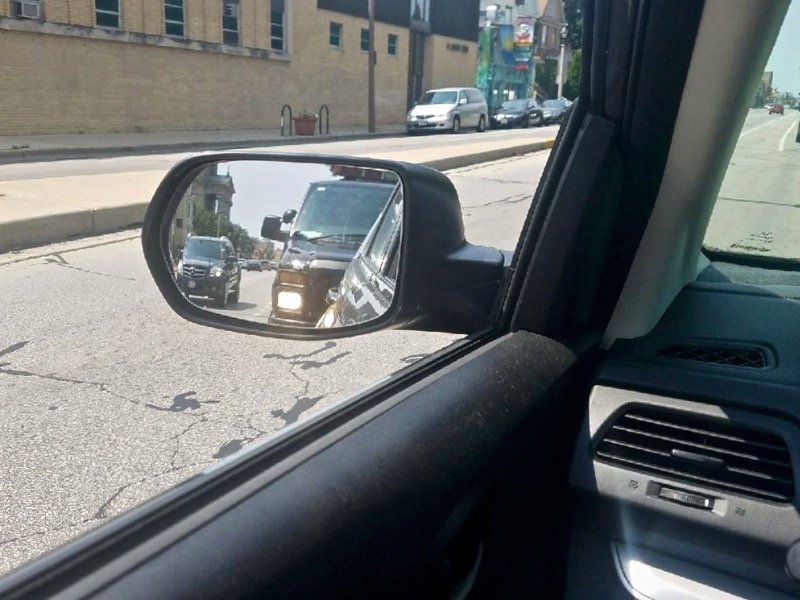Angry readers, self-righteous writers and surly social media speculators are in a tizzy about an uptick in "clickbait," and in many respects, they have every right to be. In lots of cases, it’s a shady attempt to cash in on gullible readers, and ultimately, it doesn't work.
As someone who’s been in the business of publishing digital media for 18 years, the worst "clickbait" bothers me, too. I’ve lived through all of the lame attempts that shout "let's squeeze revenue out of unpaid readers:" pop-unders, pop-overs, registration tricks, badly-constructed paywalls, disguised advertorials, overt and buggy affiliate links, auto-refreshing pages … you name it. In many cases, we also have have dipped our toes in these waters at OnMilwaukee, but when tactics start to violate our core mission statement and journalistic ethics, we get out of that pool and stay out. Currently, for example, we're trying out a "related product" widget at the bottom of articles. If it doesn't work to our or your satisfaction, we'll turn it off.
But let’s talk about "clickbait." I put it in quotes because it means different things to different people. It’s certainly not new: Newspapers have splashed banner headlines on their front page for well over a century (think about old-timey newsboys shouting "READ ALL ABOUT IT!"). TV stations promote their own version of "clickbait" all the time, especially during sweeps.
So why all the fury just because it's online, when mostly, readers are getting the content for free, and those clicks supposedly can help pay the bills and drive revenue?
Because often, it’s wholly disingenuous, and it alienates the trust of readers – and it doesn’t make enough money to justify the outrage. That’s a big problem.
A while back, we had a writer here who proclaimed how much he hated "clickbait" during an editorial meeting. I asked him what he was referring to, and it was a headline that I, myself, had written (I love writing headlines). Trust me: It wasn’t click bait. It was just a good headline. We are never trying to bamboozle anyone.
That’s when we started thinking about the difference between catchy headlines and clickbait. If you write boring headlines, especially online, people may not read your possibly great story. Content creators, you should always include a compelling photo, a great teaser – which is what we call the description text below the headline – and accurate keywords, too. You should write different headlines for Web, Twitter and Facebook, because they all have different voices. You should use hashtags. If you don’t do that, you aren’t embracing the medium at hand. You’re encouraging people not to read your stuff, and that definitely is how you keep your online publication from growing and/or keeping the lights on.
That isn’t clickbait. But these ridiculous headlines are:
- "The Best Kept Secret in Mattresses"
- "Rheumatoid Arthritis Affects Your Heart In 8 Ways!"
- "Do Not Use The Internet In The U.S. Today … Until You’ve Read This"
- "You’ll Never Believe The One Shocking Thing That Prince and David Bowie Had In Common"
The first three are paid content headlines running today on CNN.com, served via Outbrain, one of the click-bait affiliate programs used by major websites you view all the time. The last one I made up, but I wouldn't be surprised if it existed somewhere.
The problem with these headlines is both that they are fake stories, made to look like CNN articles, and almost everyone, including very legit news organizations, does it. JSOnline does it, WISN.com does it, FOX6now.com does it, Gawker does it. We used to do it, too, (at my urging) until we killed it (also at my urging), because it was making us look bad.
When fake stories are placed in a section called "From Around The Web," or "You Might Like," well, that's just a lie. No one likes them.
For providers like Outbrain, Content.ad and Taboola to work, users have to click on this dreck, so making it look like actual home-grown content is key. For us, it definitely wasn’t worth the couple of hundreds bucks we made each month to trick our loyal readers. As a media consumer, I, too, am annoyed when I wind up in sea of fake articles, tabs opening every which way and that. Native advertising is one thing – we have a legitimate section of limited sponsored content – but we make it very clear, and we have final say over anything that runs on OnMilwaukee. That’s very different than what some others are doing in this space.
Of course, perceived "clickbait" also comes in the form of genuine content, and in that case, I’m not so offended. While a straight-up, informative traditional headline is often fine, I’m definitely in favor of sprinkling in a healthy dose of listicles and grabby adjectives to suck readers in. I personally wrote the headline "7 sexy Milwaukee landmarks," and Molly’s post on "Why you should wear jeans to work on Wednesday" worked as intended. That gets people reading and talking. We scrutinize our analytics for time spent per session, as well as pages per session. Both are increasing as we continue down this uncharted path. That’s not smarmy; it’s strategic. Writers and editors shouldn't fight it – media is evolving from what we learned in college journalism classes. Let's embrace it ... with a caveat.
See, clicks aren’t everything anymore – engagement is the name of the game. We want and pride ourselves in our loyal, return readership, not one-off SEO scams or misleading tabloid tricks. That’s not how we roll.
And that’s why I found myself annoyed with an opinion piece published this week in the Milwaukee Journal Sentinel, titled "Nobody cares that you’re sad about Prince."
A headline like that isn’t just click bait. It’s looking for hate clicks and hate tweets, which are even worse. Christian Schneider’s otherwise fine op-ed was discredited by that callous and hypocritical headline – I checked and he posted several tweets about his sadness over Prince's death. Drive buzz, attach to a popular topic of the day, sure, but as publisher of OnMilwaukee, I know we would’ve never let that hed fly here.
I know what you’re going to say: What about Dave Begel? Indeed, our freelance columnist writes plenty of pot-stirring opinion pieces, too, but we regularly edit his headlines to make them more reflective of the content he writes (sometimes to his chagrin), because we believe that when you write something good – and Begel has 50 years of journalism experience – you don’t need to throw bombs in the headline just to get people to hate-click.
Bottom line: It’s a fine line. Someone once told me that he can’t define porn, but he knows it when he sees it. Same with "clickbait." This is another Johnny-come-lately trend for both old and new media trying to monetize digital media via gimmicks, not through quality content and context that leads to community and engagement, that in turn drives ROI.
Through attrition, reader fatigue and just time, this too shall pass.
Andy is the president, publisher and founder of OnMilwaukee. He returned to Milwaukee in 1996 after living on the East Coast for nine years, where he wrote for The Dallas Morning News Washington Bureau and worked in the White House Office of Communications. He was also Associate Editor of The GW Hatchet, his college newspaper at The George Washington University.
Before launching OnMilwaukee.com in 1998 at age 23, he worked in public relations for two Milwaukee firms, most of the time daydreaming about starting his own publication.
Hobbies include running when he finds the time, fixing the rust on his '75 MGB, mowing the lawn at his cottage in the Northwoods, and making an annual pilgrimage to Phoenix for Brewers Spring Training.







